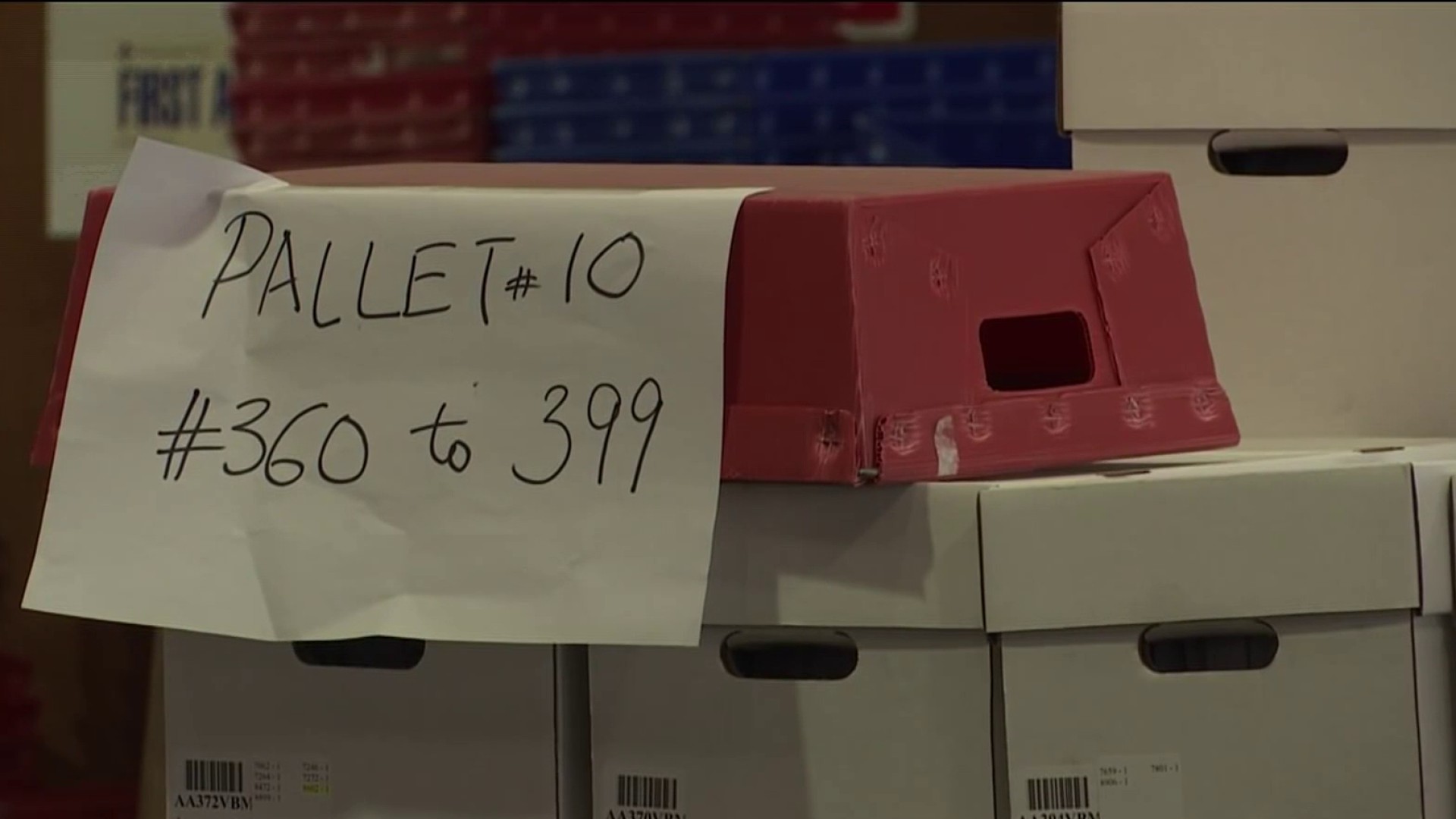For middle-income earners, the dream of Bay Area home ownership might seem impossible.
The price of a typical single-family home can exceed $1 million in many places. With mortgages often requiring a 20 percent down payment, that means a homebuyer could need $200,000 cash on hand just to get a loan. That figure -- enough to buy a house outright in many other states -- is out of reach for millions of Bay Area families.
Coming up with that much money was a steep challenge for Lisa Masoud, a teacher in San Jose.
"My husband and I were jumping from apartment building to apartment building, trying to dodge the rent increases," Masoud said. "In the last four years, we had moved five times to avoid that... which took us from Milpitas, to San Jose, then back to Milpitas, then to Fremont, then to San Jose."
Fed up with moving, Masoud and her husband were determined to buy. But even with their combined salaries, she wasn't confident they could find a home they liked -- and could afford.
"I would have to buy a home that was either a fixer-upper, or one that wouldn't fit the family that I see in the future," Masoud said. "And in the Bay Area, it's very uncommon to find a house that's not overbid by $200,000, and you're out of the competition."
Today, the elementary school music teacher can perform on her piano and guitar in a charming, well-updated house in east San Jose. She calls it her true dream home.
"I love the location," she says. "I love my short commute. I love the hills in the background. It's quiet."

In finally landing this fully-remodeled three-bedroom house, Masoud says she achieved the impossible -- she bought a house on a public school teacher's salary.
Local
"I feel like I tricked Bay Area housing," she said, laughing.
Down Payment Partnerships
Masoud and her husband bought the house with the help of Landed, a San Francisco company that offers to cover up to one-half of a teacher's down payment.
Landed co-founder Alex Lofton says the company is on a mission to help educators build financial security.
"We're looking to be that 'bank of Mom and Dad' that a lot of people don't have," Lofton said. "It's a long-term investment."
Landed calls its down payment partnership plan "shared equity". Here's how it works: teachers get money for a down payment. Then, when they sell the home in the future, Landed gets a cut of the proceeds.
"Any profit that is generated from this fund goes back into a similar fund to help more educators in the future," Lofton said.
For now, Landed is focused on helping educators -- who don't typically command the six-figure salaries that drive the Bay Area market -- fulfill their dreams of home ownership. Lofton said the company may expand to other fields in the future, but he agrees the concept could work for anyone.
"I think shared equity is a tool many people could use, myself included," Lofton said. "As a millennial in San Francisco without a rich mom and dad, how do I get started as a homeowner?"
For would-be homebuyers who aren't educators, another San Francisco company is offering something similar to the general public. Unison calls its product "co-investing."
"You just have to change your mindset from going it alone, to going in Unison," the company says in an online promotional video. "It's like, all of a sudden, you have a rich uncle, but only better because we're business partners."
NBC Bay Area tried to meet with Unison for this story, but a company representative was not available before our deadline.
The money to back companies like Unison and Landed comes from a variety of sources. Landed tells us it received funding from various foundations, and it now works with long-term investors, such as pension funds, that are willing to wait patiently for years before seeing their gains.
Risks and Benefits
If you buy through an equity sharing partnership, what happens if the home loses value? Both Unison and Landed say they share in those losses, though they're betting home prices will rise in the long run -- which they have. Despite some dips, like the 2008 recession, home prices have trended upward for as long as economists have been keeping records.
Brett Theodos is one such economist, researching housing for the Urban Institute. He cautions that shared equity isn't necessarily for everyone.
"The real questions, to me, involve the benefits to the consumer," Theodos said. "What they're doing is trading away some of their return potential, so in some ways, they're closing in the upside potential of their home."
Theodos points out some mortgages require down payments of less than 20 percent. Borrowers might have to pay more each month, and may need to carry mortgage insurance. Theodos says the trade-off is in the long run, because when they sell, they get to keep all of the proceeds.
"If they're able to carry the monthly costs, not trading away the upside, that really might be the better option," Theodos said.
Theodos and his colleagues have created a list of 11 questions every borrower should ask before signing up for shared equity: what's the total, all-in cost? How does the math change if you make big home improvements? And, what happens if you want or need to move?
"What are the terms and conditions around that equity share?" Theodos said. "Most fundamentally, do you understand what you're trading away?"
In San Jose, Masoud says she understands exactly what she signed up for -- and she's sold on the benefits of shared equity.
"If my house depreciates, they also take a loss," Masoud said. "So, we are in this housing buying together; and, if my house [value] goes up, they get what they deserve, because they've essentially invested in our house."



